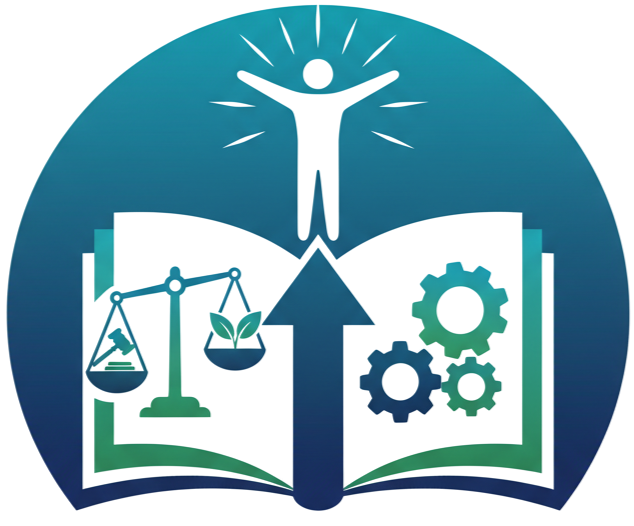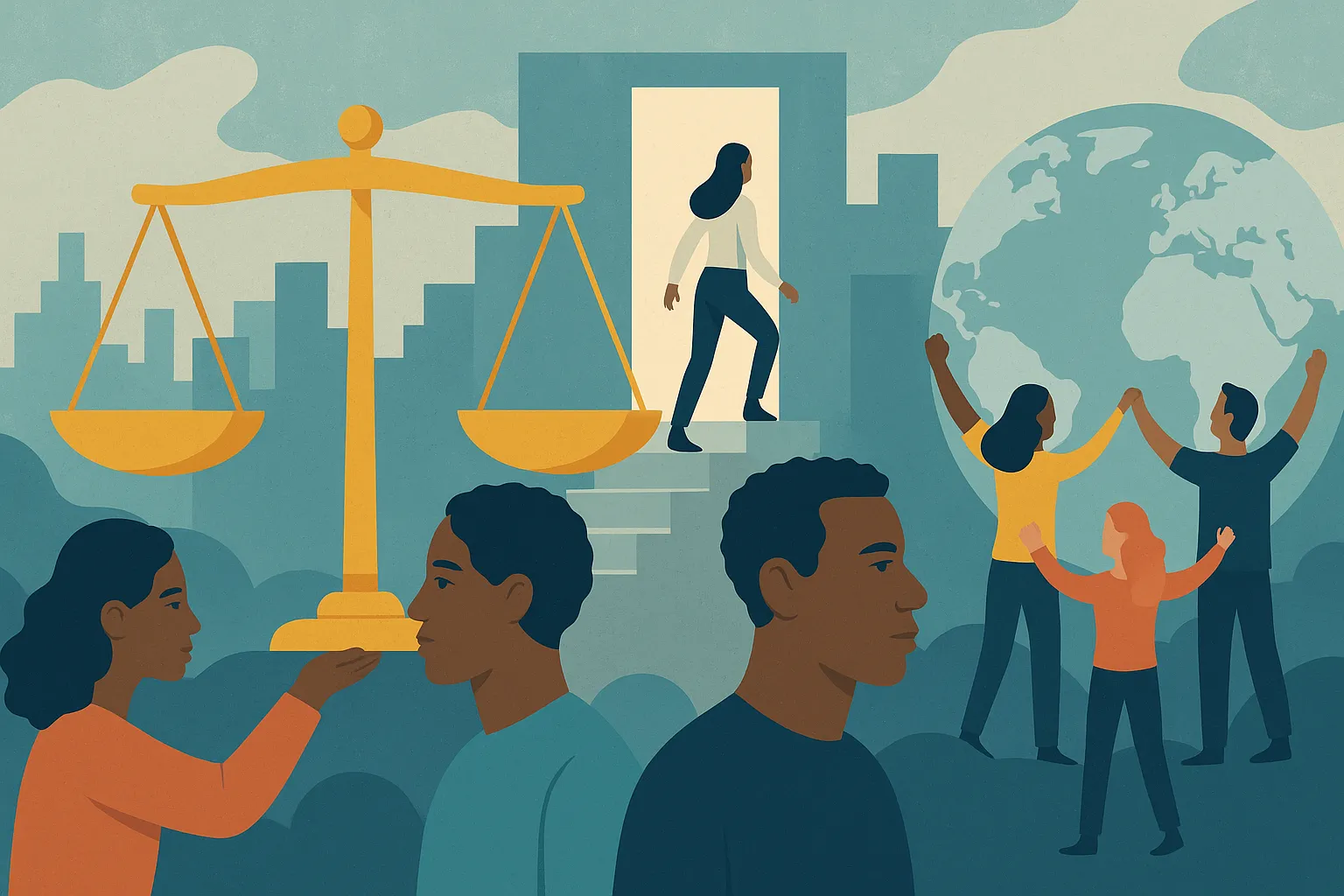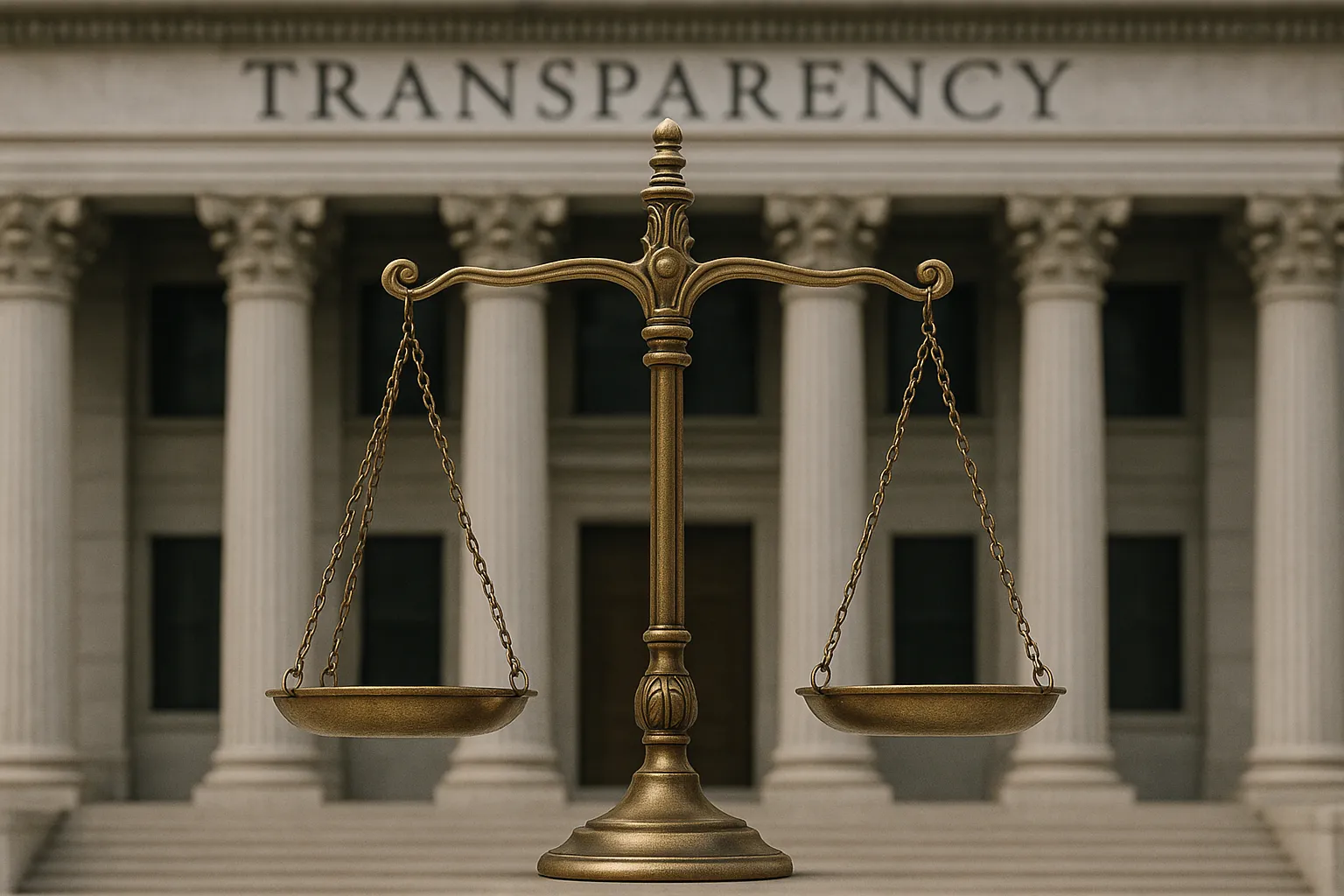The Meaning of Fairness in a Changing World
Fairness is more than an ethical principle — it is the foundation upon which trust, peace, and progress are built. A fair society is one where opportunity, justice, and dignity are not privileges reserved for a few but rights guaranteed to all. Yet in today’s rapidly evolving world, achieving fairness has become increasingly complex. Economic divides are widening, technological advancements are reshaping employment, and social inequality continues to silence many voices.
To create a fairer future, societies must redefine what fairness means in the 21st century. It is no longer enough to provide equal access on paper; fairness must be measured by outcomes and lived realities. True fairness acknowledges that not everyone starts from the same position and that systemic imbalances — rooted in history, discrimination, and power — shape who gets to succeed.
A fair future is one that deliberately dismantles these barriers. It is not about perfection or utopia but about continuous improvement: learning from injustice, redistributing opportunity, and ensuring that the structures of society serve all, not just the powerful few.
Equality and Equity: Knowing the Difference
One of the most misunderstood aspects of fairness is the difference between equality and equity. Equality means giving everyone the same resources or opportunities; equity means recognizing differences in need and providing support accordingly. A fair system understands that people face unequal circumstances — and adjusts its support to ensure that everyone can reach similar outcomes.
For example, in education, equality would mean giving every student the same textbook, while equity would mean ensuring that each student has the tools, time, and environment necessary to learn effectively. A child from a disadvantaged background may need additional resources to achieve the same success as a child from a stable, affluent home.
This principle applies across all areas — employment, healthcare, justice, and technology. Policies built on equity instead of simple equality address the root causes of inequality rather than treating its symptoms. A fair society doesn’t ignore difference; it responds to it with compassion and intelligence.
Economic Fairness and Opportunity
Economic fairness is one of the most tangible measures of justice. When wealth is concentrated in the hands of a few, opportunities shrink for everyone else. The result is frustration, division, and declining trust in institutions. A fair economy should empower people to build stable, dignified lives — not trap them in cycles of debt, insecurity, or dependence.
Wages must reflect the true value of labor, and access to employment should be based on ability, not background. Fairness also requires addressing systemic barriers such as gender pay gaps, racial discrimination, and unpaid care work, which continue to undervalue contributions made by women and marginalized communities.
Moreover, economic fairness extends beyond employment. It involves access to affordable housing, healthcare, education, and digital connectivity — the modern necessities that determine quality of life. Public policy must ensure that no one is excluded from participating in society’s growth simply because of financial limitations.
True fairness also involves holding corporations accountable for ethical conduct — from environmental responsibility to tax justice. When businesses contribute fairly to the societies they profit from, they help build economies that are both prosperous and inclusive.
Fairness in Education: The Foundation of Equality
Education is the most powerful equalizer, but only when access and quality are universal. In many societies, the education system still mirrors inequality rather than erasing it. Schools in affluent neighborhoods thrive while those in poorer areas struggle with underfunding, overcrowded classrooms, and limited resources.
To create a fairer future, education must become both accessible and adaptable. This means investing not only in infrastructure but in teachers, mental health support, and digital literacy. It also means integrating values of diversity, empathy, and critical thinking into the curriculum, preparing students to live and work in a global, interconnected world.
Beyond formal education, lifelong learning must become a societal norm. The world is changing too quickly for learning to stop at graduation. Reskilling programs, online learning platforms, and public libraries all contribute to a culture where knowledge is shared freely and continuously. A fair society ensures that no one is left behind by technological or economic change simply because they lacked access to education.
Justice and the Rule of Law
A fair future cannot exist without justice that is both accessible and impartial. The law must serve as a shield for the weak, not a weapon for the powerful. Yet, in many places, justice remains uneven — determined by wealth, influence, or geography.
Access to justice means ensuring that everyone, regardless of income or social status, can seek legal recourse when wronged. Legal aid programs, community courts, and simplified judicial procedures help bridge this gap. But justice is not only about courts — it is also about fairness in policing, sentencing, and rehabilitation.
Reforming justice systems to address racial bias, over-incarceration, and corruption is essential to restoring faith in the rule of law. The goal is not only to punish wrongdoing but to correct and prevent it. A system rooted in fairness understands that rehabilitation and education can often do more to strengthen society than punishment alone.
Transparency within the justice system — including public access to case information and independent oversight — further ensures accountability. When citizens trust the law, they trust the institutions that uphold it.
Technology, Innovation, and Digital Fairness
The digital revolution has opened unprecedented opportunities, but it has also introduced new forms of inequality. Access to technology determines access to education, work, and even civic participation. Those without reliable internet or digital literacy are effectively excluded from the modern economy.
A fair future must guarantee digital inclusion — affordable connectivity, accessible devices, and education on safe digital use. Governments and corporations alike must ensure that technological progress benefits everyone, not just those already privileged.
Furthermore, as artificial intelligence and automation reshape industries, fairness demands foresight. Workers displaced by technology must be supported through retraining programs and social safety nets. Ethical technology must also prioritize privacy, prevent algorithmic bias, and protect users from exploitation.
Technology should not deepen divides; it should bridge them. The fair future is one where digital innovation amplifies humanity, not replaces it.
Climate Justice and Environmental Fairness
Fairness extends beyond human society — it includes the planet itself. Environmental degradation disproportionately affects the vulnerable: communities near polluted areas, small farmers facing drought, and nations at risk from rising sea levels. Climate justice recognizes that those least responsible for the problem often suffer the most from its consequences.
Creating a fairer future requires balancing economic growth with environmental responsibility. Clean energy, sustainable agriculture, and green infrastructure are not luxuries — they are necessities. Governments must prioritize policies that protect natural resources while supporting workers and industries through the transition to sustainability.
Environmental fairness also means intergenerational fairness — ensuring that future generations inherit a livable planet. Fairness across time is perhaps the greatest moral test of our era: whether we are willing to act not just for ourselves but for those yet to come.
The Role of Leadership and Global Cooperation
Fairness requires leadership with vision, courage, and empathy. Leaders must act not as rulers but as stewards — guiding societies toward inclusion, sustainability, and justice. This means making difficult choices: redistributing wealth, regulating harmful industries, and protecting the rights of minorities even when it is politically inconvenient.
However, fairness cannot be achieved by any one nation alone. The world’s most urgent problems — climate change, migration, pandemics, and inequality — demand global cooperation. International fairness requires equitable trade systems, fair taxation, and humanitarian policies that reflect shared humanity rather than self-interest.
Global institutions must evolve to represent all nations equally, giving smaller or developing countries a stronger voice. A fair world begins when power is distributed not by dominance but by mutual respect.
Turning Vision into Practice
The path toward a fairer future begins with ideals but succeeds only through implementation. Vision without structure remains a promise unfulfilled. To make fairness real, societies must translate moral conviction into measurable policies, cultural change, and individual action. This transformation requires time, persistence, and the recognition that fairness is not a static goal — it is a living process that adapts with each generation.
Putting fairness into practice starts with aligning intentions and systems. Laws, institutions, and everyday behavior must reflect the values they claim to uphold. A fair society cannot depend on isolated reforms or symbolic gestures; it requires a coordinated effort across every level of governance and community life. This includes rethinking how we educate, how we govern, how we distribute resources, and how we measure progress.
The ultimate test of fairness lies in outcomes. If citizens continue to experience exclusion, if wealth and privilege remain inherited rather than earned, then fairness exists only in name. It must therefore become both a guiding principle and a benchmark — a constant measure of whether our collective actions truly serve the common good.
Inclusive Governance and Participatory Democracy
A fair society depends on governance that represents all voices, not just the loudest or most powerful. Inclusive governance means creating systems where decision-making is transparent, participatory, and accountable. Citizens must not only vote but also have meaningful influence in shaping policies that affect their lives.
Participatory democracy involves mechanisms such as public consultations, citizen assemblies, and local advisory boards that include diverse representation — women, minorities, youth, and people with disabilities. When people see themselves reflected in political processes, they feel ownership of their society’s direction.
Transparency is equally crucial. Governments that openly share data on budgets, spending, and policy outcomes foster trust. Accountability is the natural companion to transparency; leaders must answer not just to their peers, but to the people.
Fairness also demands decentralization of power. Local communities often understand their challenges better than distant administrations. Empowering them through resources and authority allows for solutions that are culturally and contextually appropriate. True democracy grows strongest from the ground up.
The Role of Education in Sustaining Fairness
Education does more than open doors — it shapes the moral and intellectual foundation of society. To sustain fairness, education must cultivate empathy, civic awareness, and critical thinking alongside academic achievement.
Curriculums should reflect diversity and encourage understanding of different perspectives. Teaching about history, social inequality, and global interdependence helps young people recognize their shared humanity. When students learn not only facts but values — respect, cooperation, integrity — they grow into citizens who view fairness not as an obligation but as a natural way of living.
Education systems must also evolve to meet the changing needs of the workforce. As technology transforms industries, access to lifelong learning becomes essential. Governments and employers share responsibility in providing reskilling opportunities that allow workers to adapt rather than be displaced. Fairness in education means ensuring that learning remains accessible at every stage of life, regardless of income or geography.
Equity in education is not achieved by standardizing opportunity but by personalizing it — understanding that each learner’s path requires different kinds of support. When education becomes inclusive, fairness becomes sustainable.
Economic Systems That Serve People
Fairness in economics requires rethinking the purpose of growth. For decades, success has been measured by GDP and profit margins, while inequality and environmental degradation have been treated as acceptable side effects. A fairer future demands a shift in priorities: from growth for its own sake to growth that improves well-being.
This means designing economic models that balance efficiency with equity. Worker-owned cooperatives, ethical investment funds, and social enterprises demonstrate that profitability and social responsibility can coexist. Governments can encourage this shift by rewarding businesses that prioritize sustainability and community benefit over short-term gain.
Tax systems must also reflect fairness. Progressive taxation ensures that those who benefit most from the system contribute proportionally more to its upkeep. Equitable taxation allows societies to fund essential services — education, healthcare, housing — without burdening those already struggling.
Economic fairness further requires bridging the gap between formal and informal work. Millions of people, particularly women and migrants, labor in informal sectors without protection or benefits. Recognizing and integrating these workers into economic policy is essential for genuine inclusivity.
In short, a fair economy serves people first — not markets, not statistics, but human dignity.
Building Trust in Institutions
Trust is the invisible currency of fairness. Without it, even the most well-designed systems fail to inspire confidence or participation. Rebuilding trust in institutions begins with honesty — admitting mistakes, addressing corruption, and demonstrating a consistent commitment to transparency.
Institutions that operate in secrecy or self-interest alienate the public. Fair governance demands open dialogue and responsiveness. Citizens must feel that their concerns are heard and acted upon, not dismissed through bureaucracy.
Public trust also grows when institutions are representative. Diversity within government, law enforcement, and corporate leadership ensures that decision-making reflects the realities of all communities. Inclusion at the top encourages accountability throughout the organization.
Over time, consistent transparency and responsiveness create a feedback loop: trust strengthens institutions, and strong institutions reinforce trust. This cycle is the backbone of a fair and stable society.
Social Protection and the Ethics of Care
Fairness extends beyond justice and economics — it is deeply connected to empathy. A fair society is one that refuses to abandon people in times of hardship. Social protection systems, such as healthcare, unemployment insurance, and housing support, are practical expressions of collective care.
The COVID-19 pandemic revealed the fragility of many social systems and underscored the need for resilience. In the aftermath, nations that had strong welfare infrastructures fared better in protecting their citizens from poverty and despair. This lesson must not be forgotten.
A just future requires universal access to essential services, free from stigma or discrimination. Welfare should not be viewed as charity but as shared security — a recognition that vulnerability is part of the human condition. By protecting others today, we protect ourselves tomorrow.
The ethics of care also apply to how societies treat the elderly, people with disabilities, and marginalized groups. Public policy should prioritize inclusion over efficiency and compassion over convenience. A fair society measures progress not by wealth, but by how it treats its most vulnerable members.
Global Cooperation and Shared Responsibility
Fairness cannot exist within isolated borders. The interconnected nature of the modern world demands global fairness — in trade, environmental responsibility, migration, and access to technology.
Developed nations have an ethical duty to support developing countries, not through paternalism but through partnership. Fair trade agreements, debt relief, and equitable climate funding help balance historical injustices that continue to shape global inequality.
Migration policy also requires fairness. Refugees and displaced people must be treated with dignity, not suspicion. Nations that benefit from global stability share responsibility for ensuring that those fleeing war or poverty find safety and opportunity.
Global cooperation extends to tackling issues like pandemics, cybercrime, and climate change — threats that recognize no borders. Fairness at the international level means recognizing our shared destiny and acting accordingly.
Redefining Progress and Measuring Fairness
To ensure that fairness remains central to policy, societies must redefine how they measure success. Traditional economic metrics alone cannot capture well-being or justice. Instead, indicators such as the Human Development Index, social mobility, and environmental sustainability should guide decision-making.
A fair society values health, education, security, and happiness as much as financial output. By aligning national goals with human development, governments send a clear message: fairness is not an aspiration but an obligation.
Transparency in measurement also matters. Publicly tracking progress toward equity — in gender representation, income distribution, and environmental impact — keeps leaders accountable and citizens informed. Data should not obscure injustice; it should illuminate it.
The Power of Collective Action
No government or institution can create fairness alone. Collective action — from grassroots movements to global initiatives — drives transformation. History shows that social change begins when ordinary people demand justice.
Communities that organize, advocate, and participate in civic life push fairness from theory into practice. Whether through volunteering, peaceful protest, or digital activism, citizens shape the moral trajectory of their societies. Each voice contributes to a chorus that keeps fairness alive.
Collective action also fosters solidarity — a sense of shared purpose that transcends differences. Fairness grows strongest where people see one another not as competitors but as partners in progress.
Conclusion
Creating a fairer future for all is not a destination but a continuous journey — one that demands courage, empathy, and imagination. It requires systems that evolve, leaders who listen, and citizens who care enough to hold them accountable.
Fairness is not a privilege to be granted; it is a right to be upheld. It lives in every decision we make — in how we share resources, treat others, and shape the world for those who come after us.
A fair future is built by ordinary people doing extraordinary things: choosing compassion over indifference, justice over convenience, and unity over division. And when fairness becomes the language of every institution and every heart, the promise of a just and inclusive world will no longer be a vision — it will be reality.




